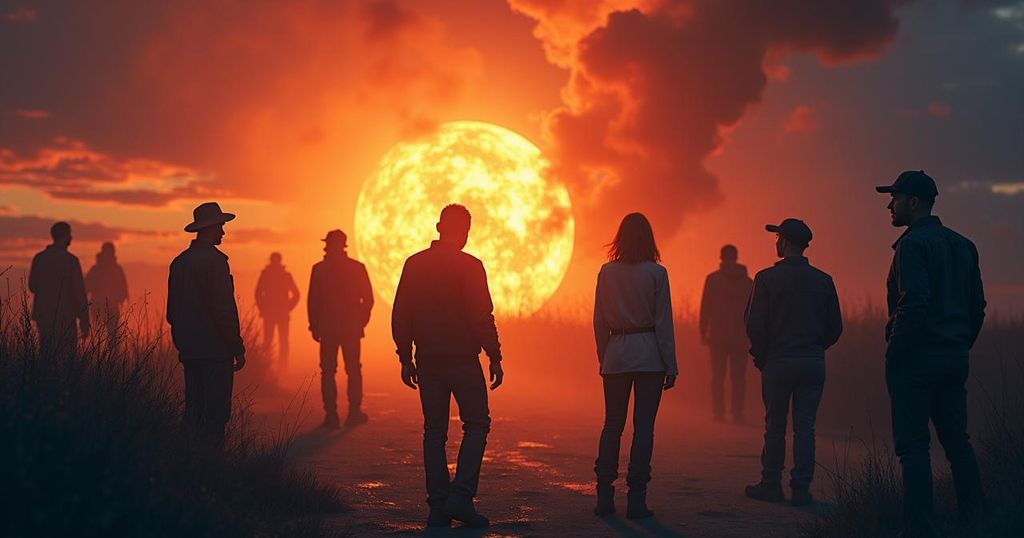Politicization of Natural Disasters: Greene’s Controversial Claims After Hurricane Helene

Following the calamity caused by Hurricane Helene, which resulted in 215 fatalities and extensive damage, Representative Marjorie Taylor Greene controversially asserted that the Democratic Party has the ability to control the weather. Despite scientific evidence refuting such claims, this incident exemplifies the troubling trend of politicizing natural disasters and misattributing human agency to natural phenomena, as various conspiracy theories continue to circulate in the aftermath of the storm.
Recent comments by Representative Marjorie Taylor Greene (R-Ga.) have sparked significant controversy following the devastation of Hurricane Helene, a category four storm that resulted in the deaths of at least 215 individuals and caused widespread destruction across several southeastern states, including Florida, Georgia, North Carolina, South Carolina, and Virginia. As communities face significant challenges in recovery, Greene insinuated that the Democratic Party possesses the ability to control weather phenomena, stating, “Yes they can control the weather. It’s ridiculous for anyone to lie and say it can’t be done.” Greene’s remarks come in the context of broader reactions to the hurricane and reflect an alarming tendency to politicize natural disasters. Her statements were coupled with a map indicating the political affiliations of the areas affected by Helene, insinuating that the disaster could skew electoral outcomes in upcoming elections. Scientific consensus, however, strongly opposes such claims, explaining that hurricanes form due to natural processes involving warm water and atmospheric conditions, a phenomenon that cannot be engineered or controlled by human entities. The National Oceanic and Atmospheric Administration (NOAA) conducted research in the 1960s aimed at hurricane modification, concluding that the immense power and scale of tropical cyclones render such interventions ineffective. In the aftermath of the storm, there has been a bipartisan mobilization for recovery efforts, but figures like former President Donald Trump have exploited the situation by spreading unfounded allegations that the federal government is withholding aid from Republican areas. Similarly, conspiracy theorist Alex Jones claimed that the Biden administration has intentionally stifled military support in affected regions, while various social media narratives inaccurately suggest that the hurricane was engineered to facilitate land grabs for lithium mining operations. Hurricane Helene has become another instance where human tragedies are interpreted through a lens of conspiracy, echoing past misattributions of causation to natural disasters. Greene’s persistent engagement in such discourse exemplifies the broader societal challenges in addressing misinformation and conspiracy theories in times of crisis.
Hurricane Helene has emerged as one of the deadliest storms in recent U.S. history, exacerbating vulnerabilities in the affected communities due to its powerful winds and heavy rainfall. The response to such tragedies often reveals the intersection of political rhetoric and scientific misunderstanding, especially as individuals seek to assign blame or control in the aftermath of natural disasters. Representative Marjorie Taylor Greene’s comments illustrate a growing trend among certain political figures to manipulate disaster relief narratives for electoral gain, capitalizing on public fear and confusion.
In summary, Representative Marjorie Taylor Greene’s controversial remarks linking Hurricane Helene to intentional weather manipulation reflect a troubling trend of politicizing natural disasters. Scientific evidence unequivocally supports that hurricanes are natural phenomena beyond human control, yet conspiracy theories continue to proliferate in the public discourse. The response to such crises should focus on humanitarian aid and recovery rather than divisive and unfounded blame, ensuring that communities receive the support they require in the wake of devastation.
Original Source: www.rollingstone.com







